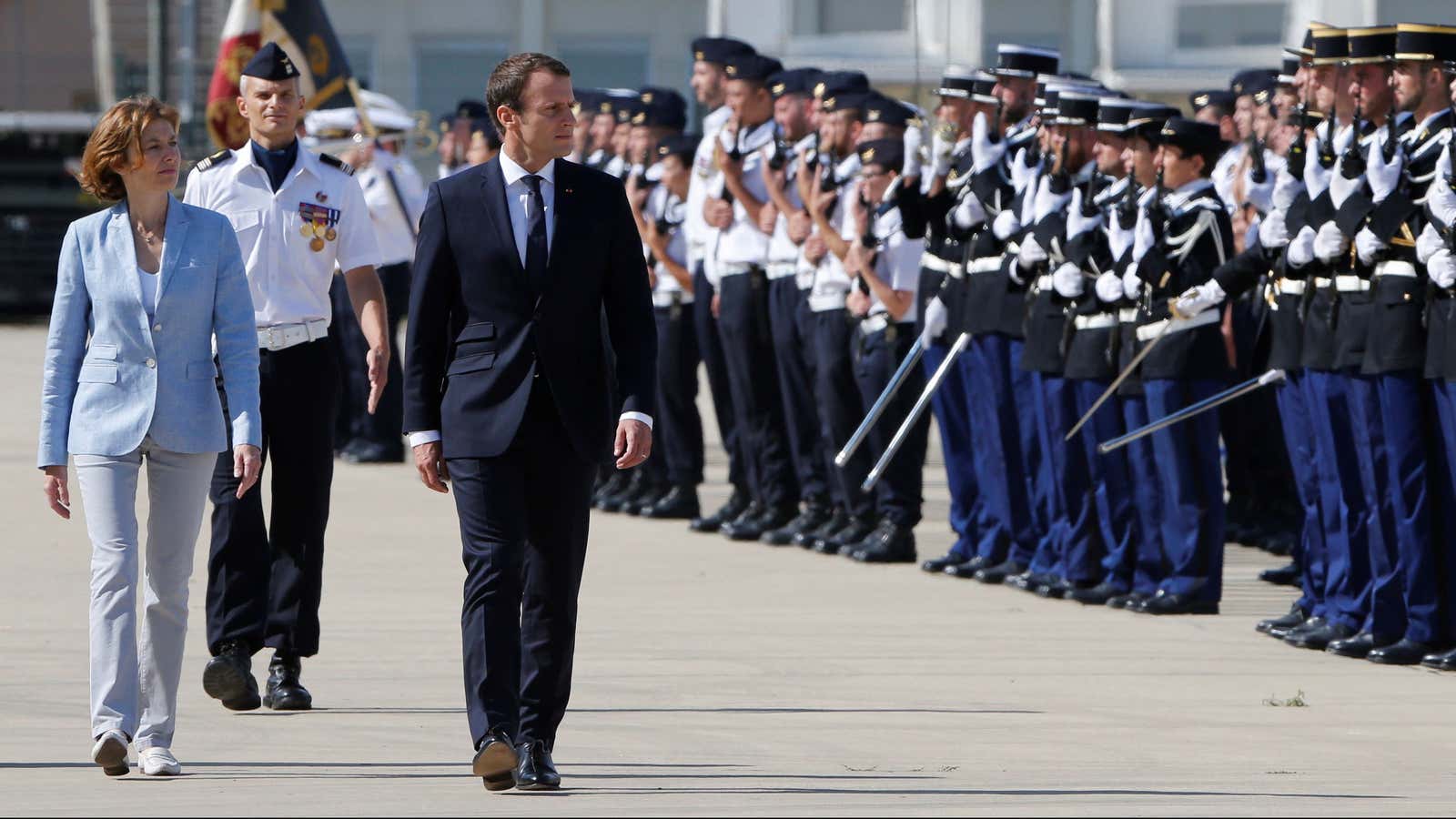The draft is slowly coming back in vogue in Europe.
Last week, France joined the growing number of European countries reintroducing mandatory national service. Following through on president Emmanuel Macron’s election promises, the government introduced a national service requirement for all 16-year-olds that will be divided into two phases.
The first phase is mandatory, and involves a month-long placement that focuses on civil culture. Young French citizens can look into teaching or work with charities, or take part in traditional military training with the police, fire service or army. The second phase is an optional placement of between three months to a year, where young people can work defense and security, or in social care, the environment, or heritage.
By bringing back national service, the French government hopes to promote social cohesion and foster and sustain a more active sense of citizenship. The service program will begin in 2019 and is estimated to cost €1.6 billion ($1.8 billon)
There are good reasons to start a national service: France has one of the highest youth unemployment rates in Europe, with a quarter of French young people unemployed. And growing discontent may be driving those young people to support populism and the far right.
France follows a peculiar trend in Europe. Last year, Sweden announced it would reinstate the military draft—seven years after abolishing it. The government cited Russian military activity and low military recruitment as justification. In 2015, Lithuania reintroduced military conscription following Russia’s annexation of Crimea.
This marks a sharp shift from under a decade ago. When Sweden initially announced it would abolish the draft, it was apart of a Europe-wide trend to do so; France, Italy, Belgium and the Netherlands abolished the draft in the 1990s and Germany followed suit in 2011. But growing tensions in the region, and civil discord are putting national mobilization back on the agenda.
